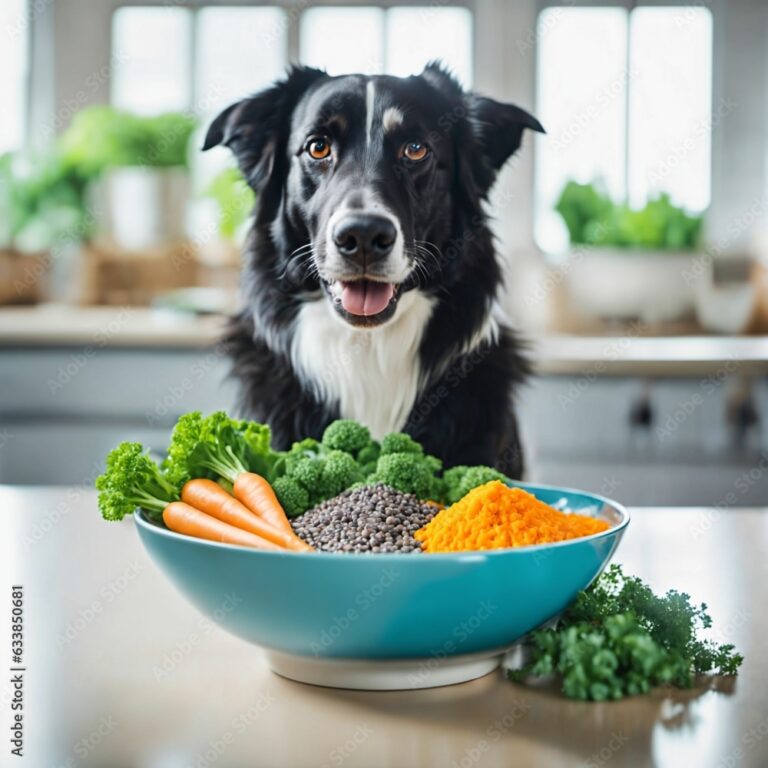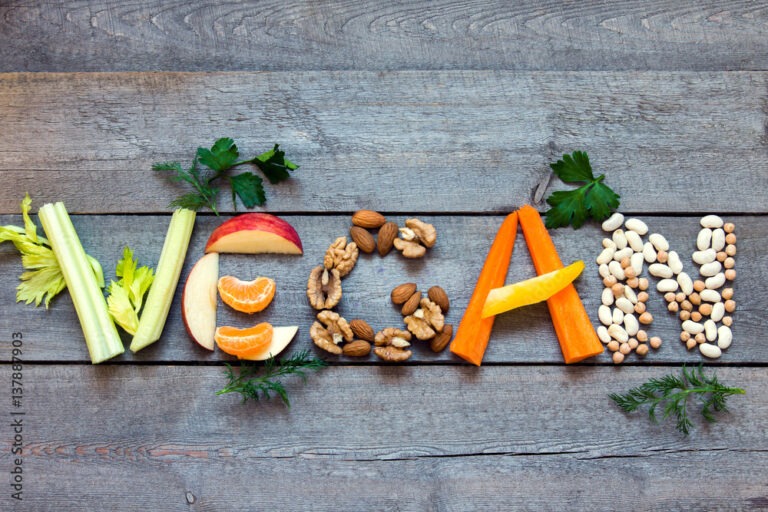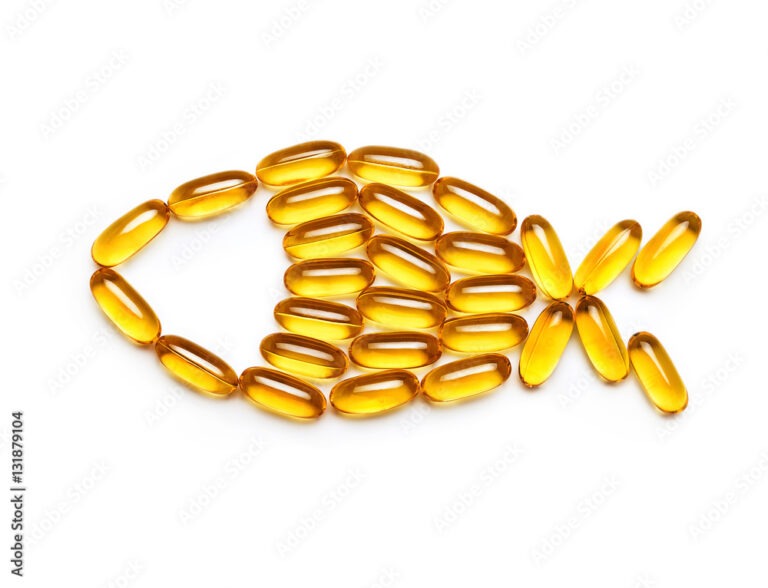Tips for Creating a Nutritious Vegan Diet for Dogs
I might receive a small commission if you click on our links and make purchases. However, please keep in mind that this does not affect reviews, product comparisons, or recommendations. We try to keep things fair and balanced to help you choose your needs best. Clicking the link does not affect your total cost.
Introduction
As more people shift toward plant-based diets, many pet owners are exploring the option of a vegan diet for their dogs. While dogs can adapt to vegan diets due to their omnivorous nature, ensuring they receive all necessary nutrients is crucial to their health. A balanced vegan diet requires careful planning, including the right blend of plant-based proteins, vitamins, minerals, and supplements. This guide covers the essentials for building a nutritionally complete vegan diet for your dog, offering advice on nutrient sources, supplementation, and tips for a safe transition.
Understanding the Nutritional Needs of Dogs on a Vegan Diet
Dogs have unique dietary needs that must be met even on a vegan diet, including essential proteins, amino acids, fats, vitamins, and minerals. Although dogs are omnivores and can digest both plant and animal-based foods, they require a balanced intake of nutrients to maintain optimal health. Key nutrients such as taurine, Vitamin B12, and Omega-3s are crucial for immune health, muscle maintenance, and cognitive function. A nutritionally balanced vegan diet for dogs ensures they receive these essentials, which can sometimes require specific supplements to fill gaps commonly found in plant-based diets.
Protein and Amino Acids
Protein is a vital part of a dog’s diet as it supports muscle growth, tissue repair, and immune function, all of which can be achieved through carefully chosen plant proteins. Legumes like lentils, peas, and chickpeas are excellent sources of protein for vegan dogs, as they provide a range of amino acids needed to form complete proteins when combined with other plant-based sources. Additionally, grains like quinoa and amaranth are considered complete proteins, containing all nine essential amino acids. To ensure an adequate amino acid profile, many vegan dog foods use soy protein, which offers a high-protein, digestible source, though dogs with sensitivities may need alternative options.
Essential Vitamins and Supplements
Dogs on a vegan diet may need specific vitamins and supplements, such as Vitamin B12 and Vitamin D3, which are typically found in animal products and play essential roles in metabolic and immune health. Vitamin B12 supports nerve function and red blood cell production, while Vitamin D3 helps with calcium absorption and bone health, which is particularly important for active or aging dogs. Omega-3 fatty acids, like DHA and EPA, are also crucial and can be sourced from algal oil, a vegan alternative to fish oil. Ensuring these supplements are part of a vegan dog diet helps maintain balanced nutrition and overall well-being.
Fiber and Digestive Health
Fiber is a valuable component of a vegan diet for dogs as it aids digestion, promotes gut health, and helps regulate blood sugar. Pumpkin and sweet potatoes, common ingredients in vegan dog foods, are highly digestible sources of fiber that help maintain regular bowel movements and support digestive health. However, too much fiber can lead to bloating or digestive upset, it’s important to balance fiber intake to suit your dog’s needs. Adding probiotics can further enhance digestive health, supporting nutrient absorption and keeping your dog’s gut healthy and functioning well.
Trace Minerals and Antioxidants
Trace minerals like iron, zinc, and iodine are essential for dogs’ metabolic functions and immune health, and they are commonly found in animal products. Iron-rich vegetables like spinach and supplementation help meet these needs in a vegan diet, though plant-based iron is less easily absorbed by dogs. Antioxidants from foods like blueberries, carrots, and sweet potatoes support cellular health and immunity, protecting against inflammation and oxidative stress. Iodine, crucial for thyroid health, can be supplemented through sea vegetables like kelp or seaweed to complete a balanced vegan diet.
Creating a Balanced Meal Plan for Your Dog
Building a balanced vegan meal plan for your dog involves selecting quality plant proteins, fiber-rich vegetables, and essential supplements to meet all nutritional requirements. Combining protein sources, such as legumes and grains, ensures a complete amino acid profile that supports muscle and energy levels. Meal portions should be adjusted based on your dog’s age, size, and activity level, with larger or more active dogs requiring more calories and protein. Sample meal plans can include legumes, quinoa, vegetables, and supplements like B12 and algal oil, tailored to your dog’s unique dietary needs for optimal health.
Essential Vegan Supplements for Dogs
Certain supplements are essential to a balanced vegan diet for dogs, including Vitamin B12 and D3 for immune and nerve health, as well as algal oil for Omega-3s to support joint and coat health. Algal oil is a plant-based source of DHA and EPA, two Omega-3 fatty acids critical for reducing inflammation and supporting cognitive function. Probiotics are also beneficial, helping vegan dogs maintain healthy digestion and optimal nutrient absorption. These supplements ensure that vegan dogs receive all necessary nutrients, particularly those challenging to source from plant-based foods alone.
Tips for Transitioning Your Dog to a Vegan Diet
Transitioning a dog to a vegan diet should be done gradually, over one to two weeks, to avoid digestive issues and help them adapt to new flavors and textures. Start by mixing a small amount of vegan food with their current food, slowly increasing the vegan portion while monitoring for any adverse reactions. Regular health monitoring, including coat quality, energy levels, and digestion, can help ensure the diet is meeting their needs. Additionally, scheduling regular vet check-ups and bloodwork can confirm that your dog is thriving on their vegan diet, making the switch safe and effective.
Vegan Dog Food Brands
1. V-Dog Kibble
V-Dog Kibble offers a nutritionally complete, plant-based formula specifically designed to meet the dietary needs of dogs, with all essential nutrients and amino acids included. The kibble is easy to digest, tasty, and a popular choice for dogs transitioning to a vegan diet due to its palatability. Known for using sustainable, eco-friendly ingredients, V-Dog aligns with values of environmental sustainability and animal welfare. As an affordable vegan dog food option, V-Dog provides balanced nutrition without animal products, making it ideal for dogs with meat allergies or sensitivities.
2. Wild Earth Dog Food
Wild Earth Dog Food is a vet-formulated, high-protein plant-based food that offers a well-rounded nutritional profile, using ingredients like chickpeas and oats to meet protein needs. The food includes essential vitamins and Omega-3s, such as DHA and B12, which support immune, skin, and brain health, making it ideal for dogs on a vegan diet. Free of common allergens like chicken or beef, Wild Earth is suitable for dogs with dietary sensitivities. Additionally, Wild Earth’s eco-conscious production process aligns with sustainability, making it a great choice for environmentally aware pet owners.
3. Natural Balance Dog Food
This is a great option for pet owners seeking a nutritionally complete, meat-free diet for their dogs. Made with high-quality plant proteins like peas and brown rice, it provides essential amino acids to support muscle health and energy. This formula includes key nutrients such as fiber, antioxidants, and Omega-3 fatty acids, promoting digestive health, a strong immune system, and a healthy coat. Ideal for dogs with meat sensitivities, Natural Balance’s plant-based recipe is free from animal-derived ingredients, artificial colors, and preservatives. Overall, it’s a thoughtful, balanced choice for pet owners looking to support their dog’s health on a vegan diet.
Frequently Asked Questions About Vegan Diets for Dogs
Is a Vegan Diet Safe for All Dogs?
A vegan diet can be safe for most dogs when carefully planned and supplemented to meet their nutritional needs, but it may not be suitable for dogs with specific health conditions. Consulting a veterinarian is essential before starting a vegan diet, especially for puppies, senior dogs, or those with medical conditions. For healthy adult dogs, a vegan diet can provide balanced nutrition if it includes complete proteins, essential fats, and adequate vitamins and minerals.
What Nutritional Deficiencies Are Most Common?
Common deficiencies in vegan dog diets include Vitamin B12, taurine, and Omega-3 fatty acids like DHA and EPA, typically found in animal products. Supplementing these nutrients is crucial to prevent deficiencies impacting energy, cognitive function, and overall health. Choosing high-quality vegan foods and supplements can help meet these needs and ensure a balanced diet for vegan dogs.
Can Puppies Thrive on a Vegan Diet?
While puppies can adapt to a vegan diet, they require careful planning to meet their high energy and protein needs during growth. Essential nutrients, such as calcium, Vitamin D, and high-quality proteins, are critical to supporting proper development in puppies. Close monitoring by a veterinarian and regular bloodwork can ensure puppies receive adequate nutrition on a vegan diet, though it’s often recommended to wait until they’re older for diet transitions.
How Long Does It Take for a Dog to Adjust?
The adjustment period to a vegan diet typically takes one to two weeks, though some dogs may require longer to adapt fully. During this time, it’s common to observe mild digestive changes, such as softer stools, as their body adjusts to higher fiber content. Monitoring their health and gradually introducing new foods can make the transition smoother, allowing dogs to comfortably shift to a plant-based diet.
Conclusion
Building a nutritionally balanced vegan diet for your dog is achievable with the right combination of plant proteins, supplements, and careful planning. From protein-rich legumes to Omega-3 supplements from algal oil, there are many ways to ensure your dog’s dietary needs are met on a plant-based diet. Regular monitoring and veterinary support are key to maintaining your dog’s health and well-being on a vegan diet. With dedication and the proper balance, you can provide your dog with a healthy, sustainable diet that aligns with your values.








